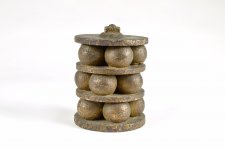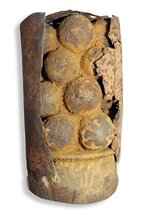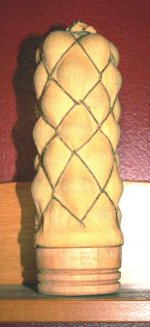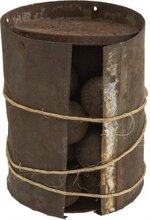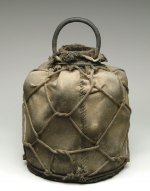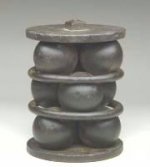Hello,
I bought a box of five of these "cannonballs" from an estate that had a number of civil war items. So, I'm hoping that they are indeed civil war cannonballs. They weight 3 pounds 10.9 ounces and measure 9-5/8 inches around the center. I'm attaching some pictures. Is there any more information needed? Thank you so much for looking at this. All the best, Scott
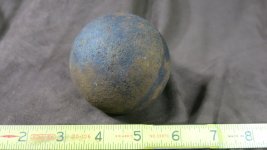
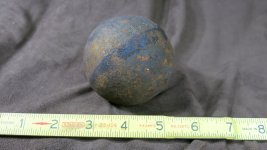
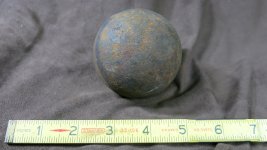
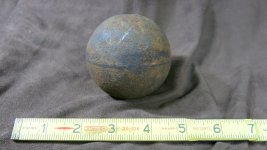
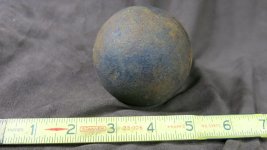
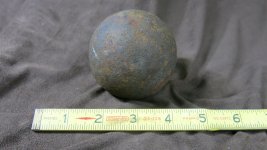
I bought a box of five of these "cannonballs" from an estate that had a number of civil war items. So, I'm hoping that they are indeed civil war cannonballs. They weight 3 pounds 10.9 ounces and measure 9-5/8 inches around the center. I'm attaching some pictures. Is there any more information needed? Thank you so much for looking at this. All the best, Scott








